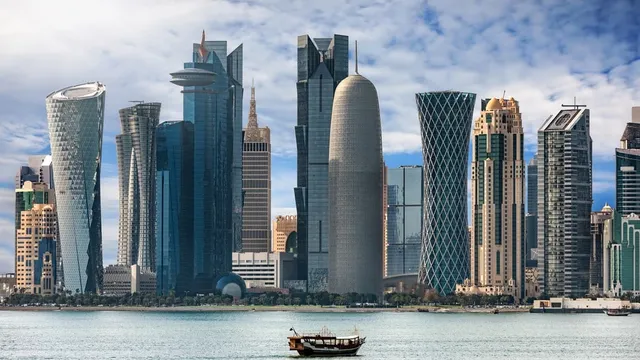
Qatar-based scholars incite jihad against Israel amid Gaza crisis
2025-04-07 11:16- The International Union of Muslim Scholars issued a fatwa encouraging jihad against Israel amidst the ongoing conflict in Gaza.
- The fatwa called for military intervention by Muslim countries and support for Hamas as a religious duty.
- The situation illustrates a troubling disconnect between the jihadist rhetoric of these scholars and the humanitarian needs of Palestinians.
Express your sentiment!
Insights
In 2023, during a critical moment in the conflict between Hamas and Israel, the International Union of Muslim Scholars (IUMS), a Qatar-based organization comprised predominantly of extremist Islamic theologians aligned with the Muslim Brotherhood, issued a fatwa calling for jihad against Israel. The fatwa emerged in the wake of increased violence following the October 7, 2023, Hamas-led attack on Israel, which resulted in widespread suffering for Palestinians in the Gaza Strip. Within this context, the IUMS encouraged immediate military action by Muslim nations as a response to Israeli actions in Gaza, labeling it an obligation for every capable Muslim. They argued that this military intervention should not only include support for Hamas but also necessitate the formation of an Islamic military alliance dedicated to the defense of the Muslim community against what they termed the
Contexts
Qatar has emerged as a significant player in Middle Eastern conflicts over the past decade, leveraging its unique geopolitical position, wealth, and diplomatic strategies to assert influence in the region. Since the Arab Spring, Qatar has sought to navigate complex political landscapes, often supporting various factions and movements that align with its interests, particularly in promoting Sunni Islam and countering Iranian influence. The nation’s capital, Doha, has become a hub for diplomatic negotiations and peace talks, exemplifying Qatar's strategy of engaging with multiple stakeholders, including groups that have been labeled as terrorists by other nations. This has led to both alliances and tensions, placing Qatar at the center of regional conflicts, notably in Libya, Syria, and Yemen, often drawing criticism and admiration in equal measure from the international community. In Libya, Qatar has supported the Government of National Accord (GNA), providing military, financial, and political backing amid the civil war that erupted in 2011. This involvement has allowed Qatar to enhance its influence in North Africa while also posing challenges in its relationships with Egypt and the United Arab Emirates, both of which have backed rival factions. Conversely, in Syria, Qatar's backing of various opposition groups against the Assad regime appeared to align with its broader strategic aim to diminish Iranian and Hezbollah influence in the Levant. Qatar's actions in these conflicts underscore its desire to project power and status as a regional leader while simultaneously facing criticism for supporting factions that have engaged in controversial activities. The Qatari government's relationship with the United States has further complicated its role in Middle Eastern affairs. While hosting a crucial U.S. military base, Qatar has been able to maintain a delicate balance between its support for Islamist groups and its strategic partnerships. This duality has often been viewed skeptically by neighboring Gulf states, particularly Saudi Arabia, which have allied against Qatar, leading to the unprecedented diplomatic crisis in 2017 when Saudi Arabia, the UAE, Bahrain, and Egypt severed ties with Qatar, accusing it of supporting terrorism. Qatar's resilience during the blockade and its ability to strengthen ties with Turkey and Iran have been significant in reaffirming its sovereignty and ongoing influence in the region. As of now, Qatar continues to play a mediating role in ongoing conflicts, advocating for political resolutions and leveraging its resources to maintain influence. Its participation in peace talks and humanitarian relief efforts positions it as a critical actor amid a backdrop of persistent instability. However, the complex dynamics of Middle Eastern politics mean that Qatar's efforts often yield mixed results, as shifts in alliances and the ever-changing landscape of geopolitical interests present continual challenges. Ultimately, Qatar's role in Middle Eastern conflicts will likely evolve further, shaped by internal developments and external pressures, but it remains a key player on the regional stage.